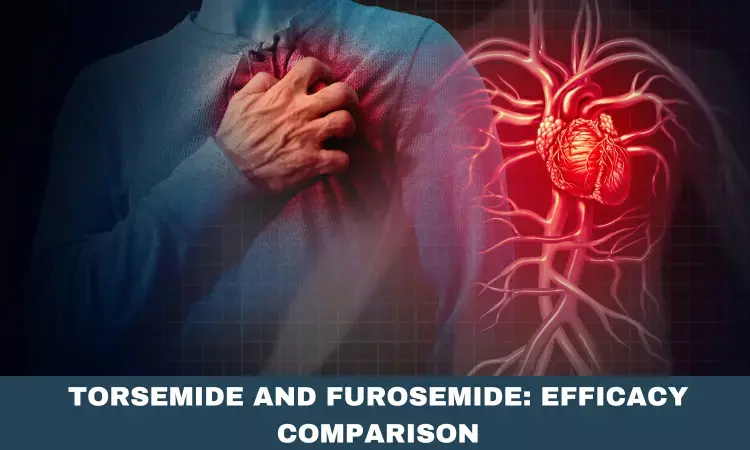- Home
- Medical news & Guidelines
- Anesthesiology
- Cardiology and CTVS
- Critical Care
- Dentistry
- Dermatology
- Diabetes and Endocrinology
- ENT
- Gastroenterology
- Medicine
- Nephrology
- Neurology
- Obstretics-Gynaecology
- Oncology
- Ophthalmology
- Orthopaedics
- Pediatrics-Neonatology
- Psychiatry
- Pulmonology
- Radiology
- Surgery
- Urology
- Laboratory Medicine
- Diet
- Nursing
- Paramedical
- Physiotherapy
- Health news
- Fact Check
- Bone Health Fact Check
- Brain Health Fact Check
- Cancer Related Fact Check
- Child Care Fact Check
- Dental and oral health fact check
- Diabetes and metabolic health fact check
- Diet and Nutrition Fact Check
- Eye and ENT Care Fact Check
- Fitness fact check
- Gut health fact check
- Heart health fact check
- Kidney health fact check
- Medical education fact check
- Men's health fact check
- Respiratory fact check
- Skin and hair care fact check
- Vaccine and Immunization fact check
- Women's health fact check
- AYUSH
- State News
- Andaman and Nicobar Islands
- Andhra Pradesh
- Arunachal Pradesh
- Assam
- Bihar
- Chandigarh
- Chattisgarh
- Dadra and Nagar Haveli
- Daman and Diu
- Delhi
- Goa
- Gujarat
- Haryana
- Himachal Pradesh
- Jammu & Kashmir
- Jharkhand
- Karnataka
- Kerala
- Ladakh
- Lakshadweep
- Madhya Pradesh
- Maharashtra
- Manipur
- Meghalaya
- Mizoram
- Nagaland
- Odisha
- Puducherry
- Punjab
- Rajasthan
- Sikkim
- Tamil Nadu
- Telangana
- Tripura
- Uttar Pradesh
- Uttrakhand
- West Bengal
- Medical Education
- Industry
Torsemide and furosemide show no significant difference in all-cause mortality in HF patients: JAMA

USA: A recent Clinical Trial called TRANSFORM-HF, published in JAMA, has found that torsemide and furosemide, two commonly used loop diuretics for heart failure patients, have similar outcomes when it comes to all-cause mortality.
Loop diuretics are medications used to manage and treat fluid overload conditions such as heart failure, nephrotic syndrome, cirrhosis, and hypertension. They stimulate the synthesis of prostaglandins which leads to the dilation of the renal and venous systems. This mechanism helps to account for certain cardiac effects, including a decrease in pulmonary wedge pressure.
TRANSFORM-HF, an open-label, pragmatic randomized trial, recruited 2859 participants hospitalized with heart failure at 60 hospitals in the United States. The study's participants were randomized to receive either torsemide or furosemide, with their dosage selected by the investigator.
Of the 2859 participants, 1431 were assigned to the torsemide group, and 1428 were assigned to the furosemide group.
The study revealed the following key clinical takeaways:
- The study found that death occurred in 26.1% of patients in the torsemide group and 26.2% of patients in the furosemide group.
- The study found that over 12 months following randomization, all-cause mortality or all-cause hospitalization occurred in 47.3% of patients in the torsemide group and 49.3% of patients in the furosemide group.
- There were 940 total hospitalizations among 536 participants in the torsemide group and 987 total hospitalizations among 577 participants in the furosemide group.
The findings revealed that torsemide compared with furosemide, did not significantly affect all-cause mortality over 12 months.
The study's interpretation of the findings is limited by loss to follow-up and participant crossover and non-adherence. The results were similar across prespecified subgroups, including patients with reduced, mildly reduced, or preserved ejection fraction.
The study's lead author, Dr Robert Mentz, added, “Important insights into the use of loop diuretics in heart failure patients suggest that both torsemide and furosemide can be effective in managing heart failure symptoms. However, more research is needed to understand each medication's potential benefits and drawbacks fully.”
Reference:
Mentz RJ, Anstrom KJ, Eisenstein EL, et al. Effect of Torsemide vs Furosemide After Discharge on All-Cause Mortality in Patients Hospitalized With Heart Failure: The TRANSFORM-HF Randomized Clinical Trial. JAMA. 2023;329(3):214–223. doi:10.1001/jama.2022.23924
Dr. Mahalakshmi Sivashankaran joined Medical Dialogues as an Intern in 2023. She is a BDS graduate from Manipal College of Dental Sciences, Mangalore Batch 2022, and worked as a Junior Resident at VMMC & Safdarjung Hospital at the Department of Dental Surgery till January 2023. She has completed a Diploma in Executive Healthcare management from the Loyola Institute of Business Administration, developing skills in Healthcare Management and Administration. She covers several medical specialties including Dental, ENT, Diagnostics, Pharmacology, Neurology, and Cardiology.
Dr Kamal Kant Kohli-MBBS, DTCD- a chest specialist with more than 30 years of practice and a flair for writing clinical articles, Dr Kamal Kant Kohli joined Medical Dialogues as a Chief Editor of Medical News. Besides writing articles, as an editor, he proofreads and verifies all the medical content published on Medical Dialogues including those coming from journals, studies,medical conferences,guidelines etc. Email: drkohli@medicaldialogues.in. Contact no. 011-43720751


